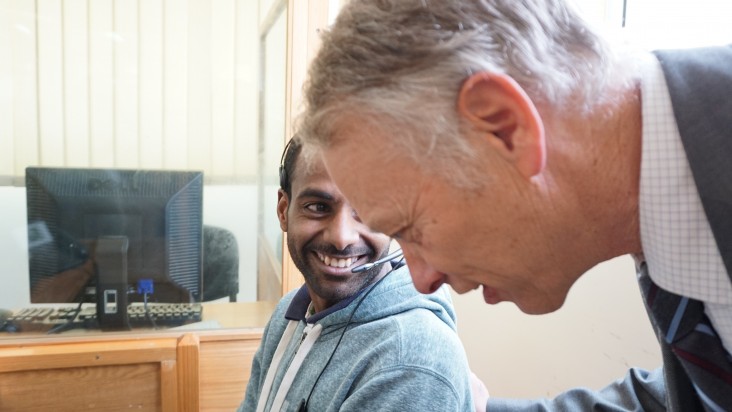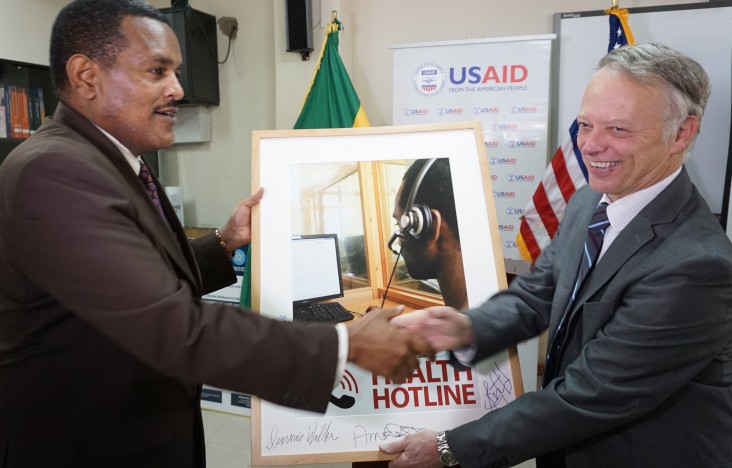
For Immediate Release
Addis Ababa, Ethiopia, June 30, 2016 – USAID and the Johns Hopkins University Center for Communication Programs joined the Ministry of Health today to transition critical components of USAID’s Health Communication Capacity Collaborative project to the Government of Ethiopia. Led by Johns Hopkins, project activities included the National Wegen HIV/AIDS hotline, the AIDS Resource Library, popular radio programs about HIV prevention, and social behavioral change communication training for the Ministry of Health.
The AIDS Resource Center has provided accurate and up-to-date HIV information to non-governmental organizations and community-based organizations, researchers, religious leaders, government officials, journalists, HIV positive people, students and members of the public. The resource center is now located at the Ethiopian National Archives Library.

At its peak, the hotline handled more than 300,000 calls per month and offered free counseling and psychosocial support for callers affected by HIV/AIDS. Almost 90 percent of the callers were between the ages of 15 to 29. In addition to HIV/AIDS, plans by the ministry to extend counseling services to other health areas are underway.
One radio program from the project, Betegna, addressed issues of stigma and discrimination because of HIV/AIDS infection. Each week the Ethiopian public heard the voices of people living with HIV/AIDS. The show was broadcasted across five radio stations in three languages—Amharic, Afaan Oromo and Tigrigna. Another program, Dagu, focused on the youth population with messages about HIV/AIDS and building life skills and played an instrumental role in reaching in-school youth in Addis Ababa.
Speaking at the ceremony, USAID Mission Director Dennis Weller said, “The Government of Ethiopia’s ownership and leadership of the transition process made this handover possible and serves as a model for other programs.”
For more than 12 years, USAID has supported Ethiopia’s response to HIV through a comprehensive package of services made possible through funding from the U.S. President’s Emergency Plan for AIDS Relief (PEPFAR). USAID will continue to support these and similar services through its Communication for Health activity, also implemented by Johns Hopkins.
For more information about the Health Communication Capacity Collaborative project, please contact Amrita Gill-Bailey at agbailey@jhu.edu.
See also
Press Release AIDS Hotline 6-30-16 [PDF, 47 kb]
Press Release AIDS Hotline 6-30-16 Amharic [PDF, 236 kb]
USAID Remarks AIDS Hotline 6-30-16 [PDF, 215 kb]







Comment
Make a general inquiry or suggest an improvement.